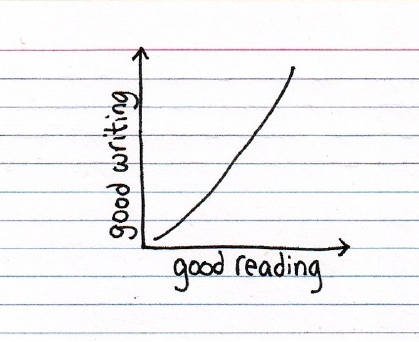
Learning to Read like a Writer
Reading and writing are akin to inhalation and exhalation. Technique can be taught, but the essence—the art—of writing is not a one-to-one transferrable skill. It takes so much of who we are, what we have experienced, to make writing that resonates. It is deeply personal. An internal probing of our own experiences and sensations.
So, how do we learn to get better at the essential art of writing?
The first way, which cannot be understated, is to write. Write often, in every mood, in any circumstance—badly or beautifully, slowly or quickly, painfully or joyfully. Write.
The second is to read. Read widely and voraciously. Most of us do that. Otherwise, we would not have come to writing. Children learn to read before they learn to write. It is the love of books as a reader that first ignites in us the desire, the need, to write.
So what does a novelist need to read?
Allow me to trace my own evolution on the subject. I wrote my first draft while reading only nonfiction. Truth be told, I have read mostly nonfiction for the last couple years. I have always read in cycles—nonfiction or fiction predominating for periods of time throughout my life.
The alternation depends on what I need. Sometimes I need hard facts, new ideas, theories and postulations, mega structures to fit the individual pattern of my life inside. Sometimes I need to witness specific human experiences, to cultivate empathy and connection, to make deep soul-sense of my life and recognize my own humanity. These needs are served for me by nonfiction, and fiction, respectively, with very little overlap.
When I began my first draft, it was with the fear that I might unintentionally steal from another work of fiction. Therefore, I thought, I needed to restrict myself to reading nonfiction. (With the occasional poetry thrown in to maintain contact with beautiful language.)
I was wrong.
When I finally started picking up novels again—still interspersing them with works of nonfiction—I realized that what they gave me was not temptation, but inspiration. What they revealed to me was the depth of my own creative impulse, the strength of my desire to write. A reminder of the importance of the novel in the literary landscape.
Fiction touches a place in me that nonfiction simply cannot reach.
And I discovered something else—my ear had been attuned by the process of writing, and so I was no longer reading in the same way. Rather than ruining fiction, which I was afraid could be an outcome of trying to write it (no one wants to eat sausage after they see how it’s made), what I gained instead was a new appreciation, a deeper recognition of the elements at work in good fiction.
Reading fiction gave me back the music, the playfulness of words, their transcendental power. The nonfiction I read had helped me be precise and more comprehensible in my writing. (This was especially true, of course, of books explicitly about the craft of writing.) But, the fiction was rewilding me, giving me license to play, to experiment, to explore unknown corners of my mind and my work. To more easily access my intuition—the birthplace of creativity.
Reading fiction reminded me of the purpose of creative work, the purpose of art, the way in which, as Picasso said, “art washes away from the soul the dust of everyday life.”
Isn’t that, after all, what we’re trying to do?
Agile Writers, let me know, do you read mostly fiction or nonfiction while you are writing?
